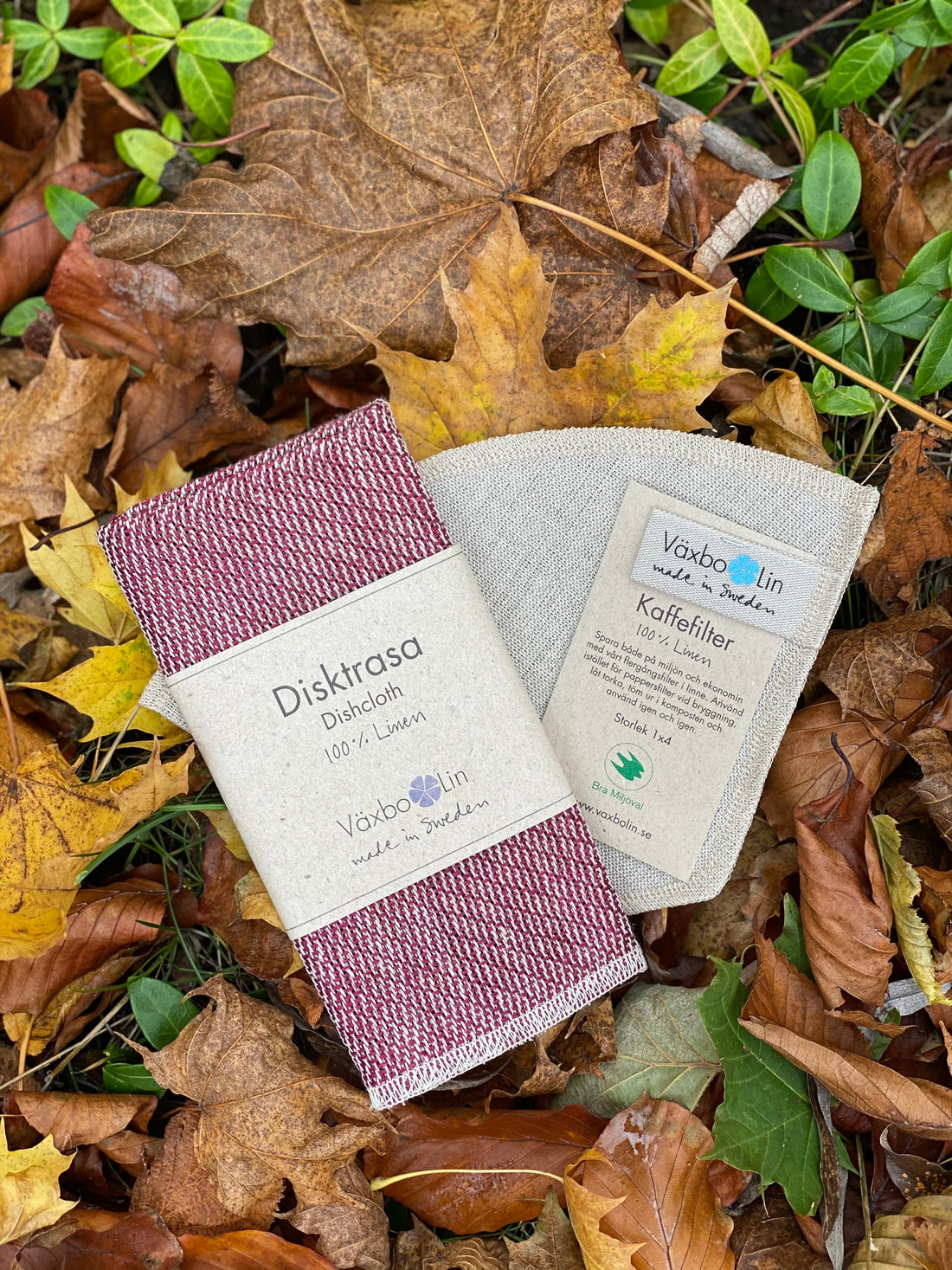
Linen fabric - a Swedish sustainable cultural heritage
LINEN FABRIC FROM HÄLSINGLAND
The oldest finds made of linen fabric originate from Egypt and have been dated to around 5000 BC.
Here in Sweden, linen was vital until cotton was introduced and took over in the 1950s. Today, linen fiber is important again as it has many advantages from an environmental and sustainable perspective compared to other textiles.
WHY IS FLAX SO GOOD?
Flax is a hardy plant that grows quickly. It can grow on nutrient-poor soils and is cultivated in countries with fairly rainy and cool climates, which means that flax usually does not need artificial irrigation. Flax is rarely exposed to insect pests, which means that flax requires less artificial fertilizers and pesticides than, for example, cotton.
1 kg flax = Requires 1 liter of water
1 kg of cotton = Requires 10,000 liters of water
FLAX AND LINEN – WHAT IS THE DIFFERENCE?
Linen is the fabric made from plant fibers from the flax plant. The former is the product and the latter is the raw material itself. To confuse things a bit, other textiles, such as bedding, are also called linen (even though they are not made from flax). But when we talk about linen, we mean fabric made from flax.
Linen is one of the strongest plant fibers available. This makes linen products durable, hard-wearing and long-lasting. Linen that is well cared for can last a long time and be inherited and used for generations.
Moths, meadow moths and other pests dislike linen, making it easier to store the fabric in cupboards for longer periods.
The fantastic properties of linen, together with a desire to invest in a vibrant countryside, mean that Växbo Lin has specialized in manufacturing all products in 100% linen. They warp, weave, sew and sew all linen products in the factory in Hälsingland.
Växbo Lin preserves knowledge and manages cultural heritage so that we can continue to have domestic production and not become dependent on other countries to be able to produce things. If we lose the knowledge ourselves, how will we be able to set standards for quality and production methods? By keeping the manufacturing in Hälsingland, they contribute to keeping the Swedish countryside alive. Without jobs in the countryside, there will be no living countryside!
Växbo Lin has a manufacturing process to be proud of, both in terms of people, materials and the environment. Having the production in Sweden means that work environment requirements are met, fair wages are paid and environmental requirements are followed.
